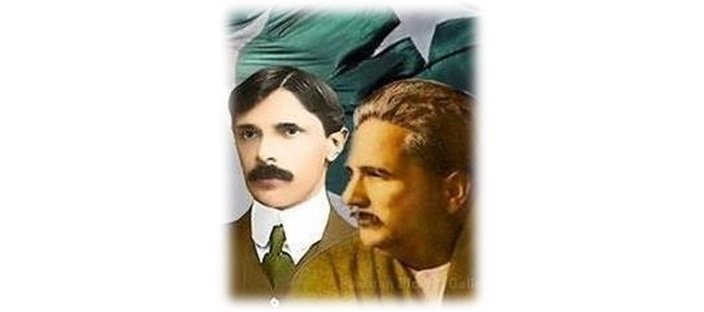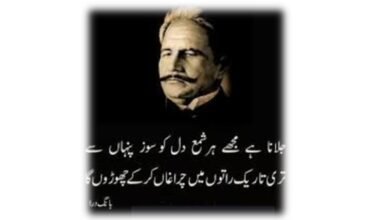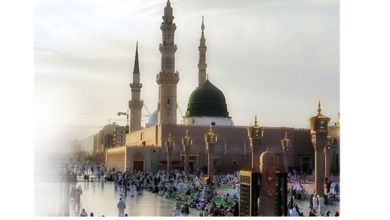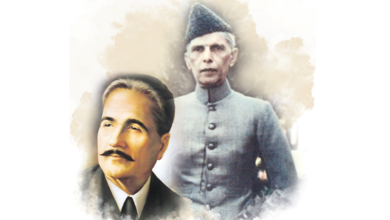“The Philosophy of Iqbal: Insights Across the Centuries”
Allama Iqbal's Intellectual Legacy: A Guide for the Muslim Ummah
Allama Iqbal is undoubtedly one of those thinkers who, besides being a poet, are counted among the minds whose thoughts and philosophies transcend centuries. In Islamic history, it is said that a Mujaddid (reformer) emerges every century who, through his thoughts and endeavours, breathes new life into the Muslim Ummah, leading to the revival of Islam and enabling the Islamic community to meet contemporary challenges with renewed vigour and determination. In the Indian subcontinent, after Mujaddid Alf Sani, Allama Iqbal holds the position of someone capable of addressing the challenges faced by the Ummah through his ideas and thoughts. Although Iqbal was a poet of the twentieth century, his thoughts and message continue to guide and uplift nations even today. The truth is that despite having access to an abundance of communication means and research resources, we have still failed to uncover the true secrets of Iqbal’s thoughts. His philosophy and ideas are like an ocean, with an entire universe hidden in its depths, and reaching these depths requires an insightful mind and unwavering resolve.
The era and environment in which Iqbal was born, the circumstances in which he was raised, the cultural disintegration he witnessed around him, and the domestic economic conditions after the upbringing by his parents played a significant role in shaping his personality. Muslims ruled India for eight hundred years; although their rule was never over the entire Indian subcontinent, they governed vast regions while being a minority. This is why, even during British colonial rule, Muslims harbored a sense of superiority, often reminiscing about their glorious past to console themselves, despite the fact that circumstances had drastically changed, and Muslims had become economically weakened. The new rulers, the British, were militarily and intellectually superior and had not only expanded their rule but had also repelled rival European powers like the Portuguese and the French, solidifying their control over India. In the 1857 rebellion against the British, Muslims played a leading role. The people of India termed it the “War of Independence,” while the British labelled it a “rebellion.” The British held Muslims responsible for this rebellion, systematically executed suspicious Muslim leaders, and economically impoverished the Muslim community. The failure of this rebellion led to extreme despair and despondency among the Muslims of India.
Regardless of whether it was a rebellion or a war of independence, this resistance or uprising was based on ill-considered, fruitless anger. Following this event, two distinct reactions emerged among the Muslims of India. One group believed that the root cause of the Muslim decline was their estrangement from Islam. They argued that Muslims neither practiced the teachings of the Quran nor were familiar with Islamic fundamental values and principles. The other group believed that the Muslim decline was due to a lack of interest in modern education and a detachment from it. They were not proficient in English, which hindered their ability to secure government jobs, and they lacked worldly wisdom, failing to maintain good relations with the British government. This group was represented by Sir Syed Ahmad Khan and his associates.
These two ideologies had a profound impact on the Muslims of the subcontinent. On the one hand, they began to educate their children in Quranic teachings and practice Islamic culture to avoid being influenced by English culture. On the other hand, some Muslims started to pursue English education, with some even paying serious attention to modern sciences, realizing that they could not compete with the British and that their safety lay in accepting British rule and acquiring the knowledge necessary to secure jobs and achieve economic prosperity. The intellectual class, aware of human history and Islamic culture, understood that British rule was the result of centuries of scholarly effort. Europe had reached its pinnacle by treading new paths of thought for centuries, beginning with the Renaissance.
It was during this time that Iqbal, during his student years, became acquainted with Sir Syed Ahmad Khan’s movement through his teacher, Mir Hassan. Given his naturally contemplative mind, Iqbal paid attention to new ideas. The intellectual, social, political, and economic conditions of that time could not have left an impressionable young man like Iqbal unaffected. Iqbal witnessed scenes of economic disparity, which is why his first published book focused on economics. Titled “Ilm-ul-Iqtisad” (The Science of Economics), this book was published in 1903 in the “Paisa Akhbar,” comprising two hundred pages.
The central theme of Iqbal’s book, “Poverty of Elevation,” is the eradication of poverty. A humanist like Iqbal recognized the severity of poverty in that era and understood that countries plagued by poverty would see a rise in crime. Consider the era when this book was written, and then reflect on today, where poverty eradication programs are being implemented in almost every poor and developing country. All civilized people desire to see poverty eliminated from the world. One must appreciate Iqbal’s brilliant intellect and farsightedness in recognizing the changing circumstances and attempting to clarify the future picture.
If we examine the streams of Iqbal’s thoughts, we find that his poetry and essays, written on various topics from time to time, encompass interpretations of concepts such as “Al-Ardh Lillah” (The Earth Belongs to God), humanity, the idea of the “Perfect Man,” the self, Sufism, the role of humans as the best of creation, human dignity, humanism, the unity of existence, Europe’s materialism, natural landscapes, the philosophy of selfhood, the concept of universalism, social democracy, a non-exploitative economic system, political nationalism, and the condition of the Muslim Ummah. All these elements, discussed by Iqbal, help in understanding his broader philosophy of humanism.
Today, when we wish to reflect on Iqbal’s poetry and ideas, we do so without hesitation in saying that while the 20th century was indeed Iqbal’s century, the 21st century also appears to belong to him. No other thinker from this region has left as profound an impact on the Islamic world as Allama Iqbal did with his philosophy, thought, and poetry.
Iqbal’s deep study of Eastern and Western knowledge, his direct engagement with major religious thinkers worldwide, his critical view of modern Western thought, his education at prestigious Western institutions, and his exchange of ideas with scholars granted him a broad perspective and intellectual depth. This undoubtedly made him the most prominent Muslim thinker of the 20th century:
بے خبر! تو جوہر آئینہِ ایام ہے
تو زمانے میں خدا کا آخری پیغام ہے
“O unaware one! You are the essence of the mirror of time,
You are the final message of God in the world.”
In another place, he states:
شعلہ بن کر پھونک دے خاشاک غیر اللہ کو
خوفِ باطل کیا کہ تو غارت گر باطل بھی تُو
“Become a flame and burn away all that is not of God,
Why fear falsehood, for you are the destroyer of falsehood.”
Iqbal did not consider the historical and earthly realities of the human-made world to be the final word. Instead, he invited humanity to revolution. He believed in the dignity and equality of humanity and envisioned a society where every individual has a sense of identity and where every person is respected. He believed in the limitless possibilities of human evolution—possibilities that are unlocked through action. He sought to see this inaction transformed into a state of agitation:
خدا تجھے کسی طوفاں سے آشنا کردے
کہ تیرے بحر کی موجوں میں اضطراب نہیں
“May God acquaint you with a storm,
For the waves of your sea lack turmoil.”
Although Iqbal’s concept of selfhood (Khudi) is universal and his message is for all of humanity—every race, region, and religion, without discrimination—his works, such as the poems “Asrar-e-Khudi” (Secrets of the Self) and “Ramuz-e-Bekhudi” (The Secrets of Selflessness), particularly address the issues faced by the Muslim community, especially the economic decline, social disarray, and political subjugation of Muslims in India. He also dreamed of a separate state based on the Two-Nation Theory, which ultimately led to the miraculous emergence of Pakistan on the sacred night of the 27th of Ramadan.
This was our Iqbal, whose farsighted vision saw a dream that was realized through the efforts of Muhammad Ali Jinnah!
May the name of my Lord be praised, who blessed us with the gift of Pakistan!






